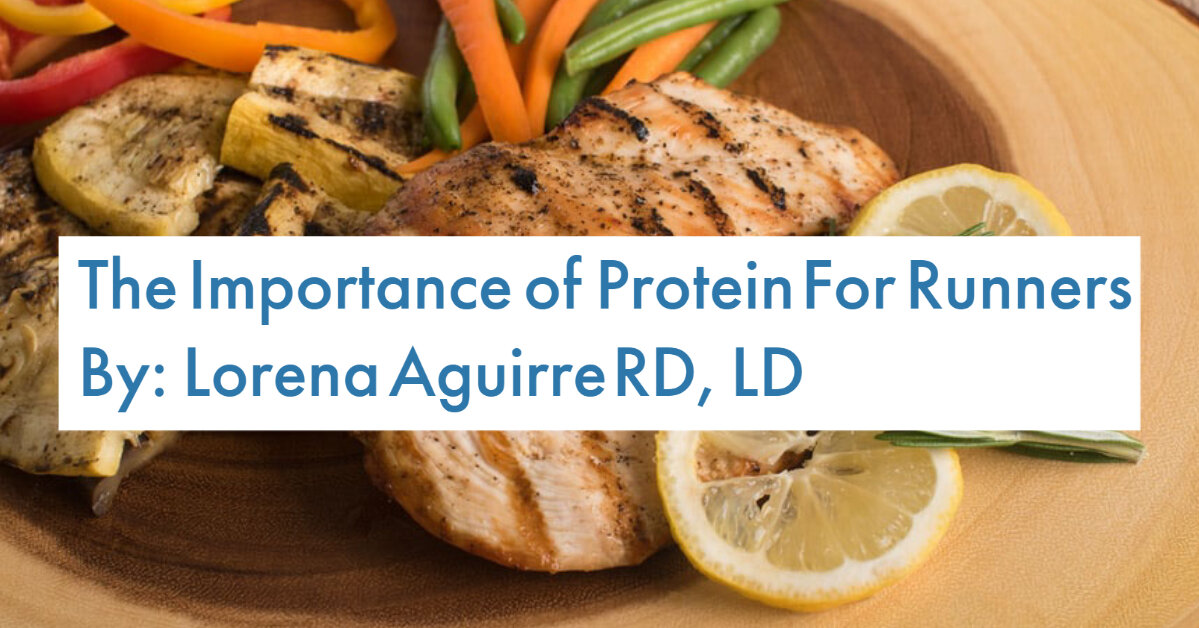The Importance of Protein For Runners
As runners, we know that protein is a crucial nutrient for muscle repair, maintenance, and growth. In addition to this, it fulfills other vital functions such as gene expression, creation of antibodies and hormones, transporting substances around the body, and facilitating chemical reactions (1).
What are proteins made of?
Proteins are made up of building blocks called amino acids. There are 20 types and their multiple combinations allow proteins to have a great diversity of functions (1). A diet high and varied in amino acids will allow our body to better perform during demanding workouts, repair muscle tissue that has been broken down during extended running sessions, and promote muscle growth and definition(2).
What happens if I don't get enough protein?
Not only won’t we be able to sustain our workouts, but a low protein intake has been associated with loss of muscle mass, strength, and function in adults, a condition known as sarcopenia. It can start during the fourth decade of our lives. Its prevention with an adequate protein intake and training is essential 2.
How much protein should I consume if I'm a runner?
The RDA (recommended dietary allowance) for protein is 0.8-1.0 grams per kilogram of body weight per day for healthy adults. However, for runners, it can vary from 1.3-1.8 grams per kilogram of body weight per day (3). For example, a runner whose body weight is 70kg (154lbs) will need 90-125 grams of protein per day. For this runner to adequately absorb it, it’s important to distribute this amount evenly throughout the day.
What are the highest protein foods?
Animal protein is considered the best quality of all protein sources. These foods provide high biological value proteins, meaning that most contain all the essential amino acids (those that our body cannot produce) (4). Examples are egg, chicken, fish, and whey protein.
Protein can also be obtained from plant sources. Great examples are beans, lentils, and edamame. These proteins are of low biological value. Therefore, it is recommended to mix two or more of these foods at the same time to increase the variety of essential amino acids (4).
What should I look out for when looking for a protein supplement?
Whey protein is the most recommended protein supplement. It is of high quality due to its amino acid profile. Thanks to this, it stimulates muscle growth and repair to a greater degree(5). However, it can cause gastrointestinal intolerance’s. In this case, the isolated whey protein is recommended, which is lactose-free(6).
If you are interested in nutrition counseling, contact Lorena Aguirre RD, LD at lorenaaguirre92@gmail.com.
Sources:
1. Watford M, Wu G. Protein [Internet]. OUP Academic. Oxford University Press; 2018 [cited 2020May30].
2. Hanach, Nivine, McCullough F, Avery A. Impact of Dairy Protein Intake on Muscle Mass, Muscle Strength, and Physical Performance in Middle-Aged to Older Adults with or without Existing Sarcopenia: A Systematic Review and Meta-Analysis [Internet]. OUP Academic. Oxford University Press; 2019 [cited 2020May30].
3. Costa RJ, Knechtle B, Tarnopolsky M, Hoffman MD. Nutrition for Ultramarathon Running: Trail, Track, and Road [Internet]. International journal of sport nutrition and exercise metabolism. U.S. National Library of Medicine; 2019 [cited 2020May30].
4. Mariotti F. Animal and Plant Protein Sources and Cardiometabolic Health [Internet]. OUP Academic. Oxford University Press; 2019 [cited 2020May30].
5. Bendtsen LQ, Lorenzen JK, Bendsen NTT. Supplemental Protein in Support of Muscle Mass and Health: Advantage Whey [Internet]. Journal of food science. U.S. National Library of Medicine; 2013 [cited 2020May30].


